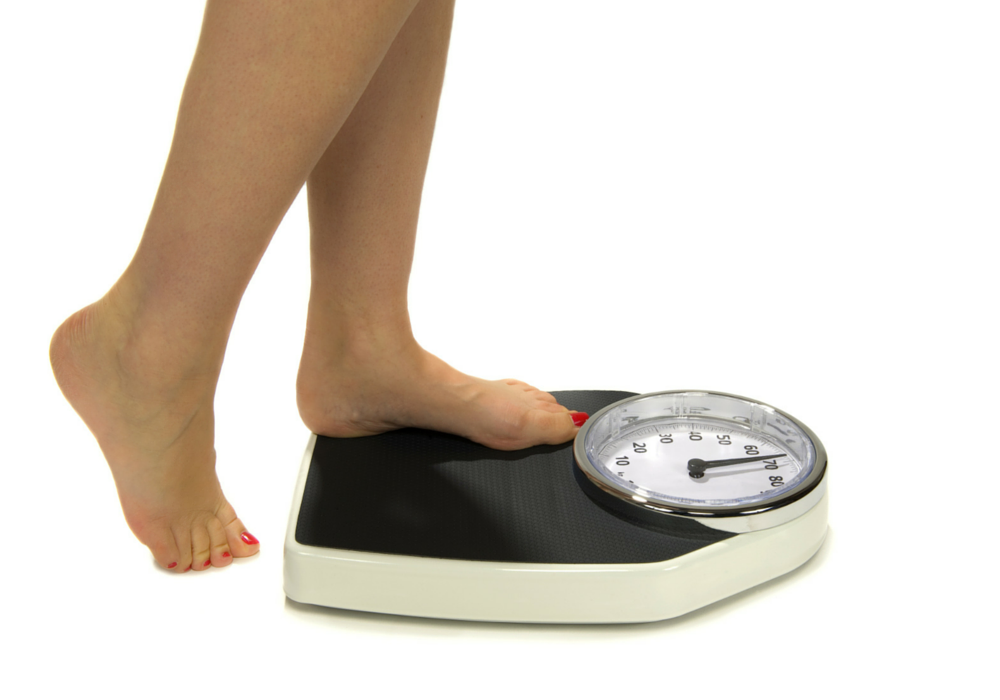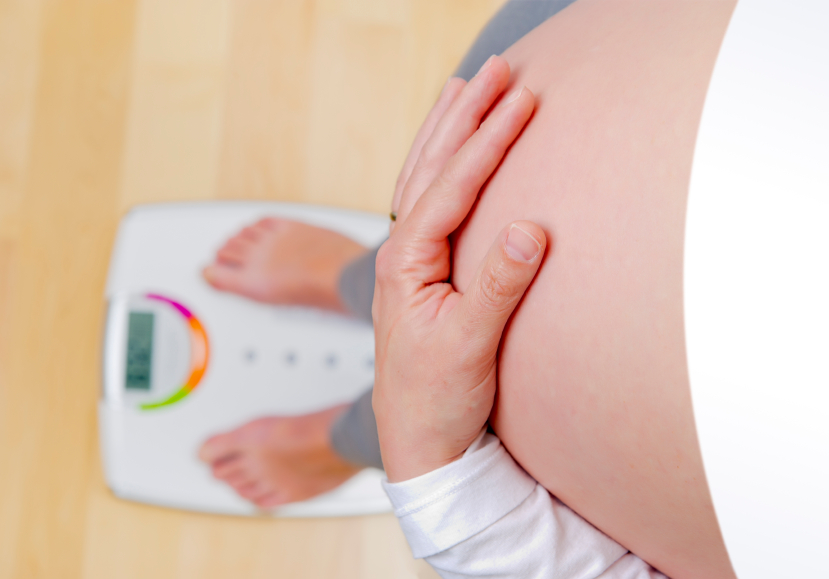Abnormalities in interval between pregnancies, mother's body mass index (BMI) prior to pregnancy and the amount of weight gain in pregnancy can lead to preterm birth, a new study has found.The study, published in the journal Maternal and Child Health Journal, showed that if these factors were modified, it could reduce the risk of premature births.
"The highest risks for premature birth were in women who were underweight, had poor weight gain during pregnancy, or short periods of time between pregnancies. Excessive weight gain in obese women also increased the risk," said Emily DeFranco, Associate Professor at the University of Cincinnati.
DeFranco and her colleagues conducted the study from birth records of nearly 4,00,000 people. Potentially modifiable risk factors for preterm birth were present in more than 90 per cent of women in the study.
Fewer than half of women begin pregnancy with a normal weight, and only 32 per cent achieve the recommended pregnancy weight gain.
"Attention should be paid to educational interventions on the importance of birth spacing, achieving an optimal pre-pregnancy weight, and ensuring adequate nutrition and weight gain during pregnancy. Improvements in these modifiable risk factors could have significant influence on premature birth and infant mortality worldwide," DeFranco added.
Putting on weight seems like a breeze while losing those kilos can really be a tough struggle, especially post pregnancy. During pregnancy, the mother needs to eat for two to ensure that the growing baby is getting all the required nutrients. After delivery, it's of course not just a day's work to make all that weight vanish. Exercise is a must and so is a healthy diet, away from junk and processed food. But taking up the responsibilities of the baby hardly leaves any time or energy behind, and this is one of the major reasons why women start ignoring their health and putting on weight. Then there are all those hormonal changes to deal with. More so with all the celebrations with friends and family, and being showered with love and good food, expanding becomes inevitable.
But don't let the pampering spoil you royally. As much as you may convince yourself that all those kilos that you are still continuing to gain is because of "post-pregnancy" it is actually far from the truth. Your post-delivery lifestyle choices are in play here.
1. Eating Habits
According to a new study done by University of Michigan in the US, new mothers keep the weight on by eating food off their child's plate.
2. Lack of Sleep
Sleep in another factor that plays a crucial role. Sleep deprivation is a common issue that new parents face due to constant monitoring of the baby.
3. Food Cravings
Lack of sleep is the instigator of unhealthy lifestyle choices because your mind is not fresh. In new mothers, it often leads to increased food cravings and appetite even if they want a healthy diet, leading to weight gain.
4. Sitting Down for Longer Periods of Time
"Mothers tend to put the needs of their children first, so they might not be exercising or taking care of themselves," said lead author Olga Yakusheva, Associate Professor at the University of Michigan in the US. Little things like spending more time sitting with their kids reading or watching a movie can result in weight gain.
5. Lack of Self-Motivation
In addition, many women really crank up their diet and exercise for a short time to get back to their pre-pregnancy weight and often get discouraged by the results. It is a tough struggle which takes time to help you get the desired body weight. As such they leave exercising all together.
However, if women want to lose the weight, they should cut the calories and work out more as well as take a holistic approach focused on a long-term healthy lifestyle, the researchers suggested.
For the study, the team looked at data for 30,000 women who had given birth between one and four times. Although all the women gained weight due to their age, there was a sharp difference between those who gave birth and those who did not. By the time their children were toddler age, mothers who had given birth had put on at least one pound more each year than those who were childless.

Experts always advise maintaining a healthy weight in order to ward off lifestyle diseases. An upward trend in weight gain over the years may lead to a host of ailments later in life. Obesity or a BMI above 25 is often linked to the risk of developing heart diseases, diabetes and other non-communicable diseases like cancer. A new study conducted by the experts at the University of Queensland in Brisbane, Australia suggests that women who gain close two pounds every year in their 20s are more susceptible to getting obese in their 40s.
It was also found that women whose body-weight gain was under 0.19kgs per year were able to maintain a healthy weight later in life. The study was presented at the European Congress of Obesity in Portugal and studied women ageing 18-23 years.
Smoking, use of oral contraceptives or turbulence in married life such as divorce, death of a partner or separation were also found as some of the contributory factors in weight gain in women. Some of the most recent studies link obesity in women - especially abdominal obesity - with metabolic issues like polycystic ovary syndrome (PCOS). Obesity is also one of the major causes of postmenopausal breast and endometrial cancer.
"Obesity is associated with elevated mortality from all causes in both men and women, and the risk of death rises with increasing weight. Curbing the twin epidemics of obesity and diabetes calls for not only changes in diet and lifestyle at individual levels but also changes in policy, physical and social environment, and cultural norms," a study published in US National Library of Medicine National Institutes of Health.

Obesity refers to having too much fat in one's body. But it isn't the same as being over-weight. An over-weight person weighs more than he is supposed to due to the weight of his bones, muscles, fats and body water. Whereas obesity occurs when there is an accumulation of excess or abnormal amounts of fat in the body. People are considered to be obese when their body mass index is more than 30 kg/m2, when the normal range is 25-30 kg/m2. Body Mass Index (BMI) is the body mass divided by the square of the body height and is universally expressed in kilograms by metre square.
According to Dr. Sujeet Jha, Director Endocrinology, Diabetes & Obesity, Max Super Specialty Hospital, "Obesity in women leads to abdominal obesity, which is the excessive fat build-up around the stomach area that leads to cardiovascular disease risk factors such as high blood pressure and diabetes. It also can harm the heart muscle more directly."
Causes of Obesity in Women
Women develop this medical condition due to several reasons which result in negative and harmful effects on their health. Thyroid, metabolic syndrome and polycystic ovary syndrome (PCOS) are a few of the leading causes of obesity in women. Genes also play a significant role at making an individual obese and some rare genetic diseases make it impossible to get rid of this condition. Pregnancy too may contribute to obesity and result in eating disorders like binge-eating.
obesity obese kids
Those who were over-weight as kids have a higher chance at being obese as adults. Steroids and drugs may have harmful side-effects on one's body and lead to obesity too. Eating foods which are high in fat and calories and not working-out to burn the added pounds are a common problem seen in most Indian households. Women who have a lower metabolic rate have a tough time in keeping a check on weight. This puts the women at a high risk for diabetes, cardiovascular diseases and a number of cancers like postmenopausal breast cancer and endometrial cancer.
Symptoms of Obesity
The symptoms of obesity are disturbed sleep, shortness of breath, gallstones, varicose veins, sleep apnea, which is a condition which causes breathing irregularity and trouble while sleeping, etc. BMI is used to diagnose obesity; if it is higher than 30, it is stated as obesity. Body fat can also be calculated by using an instrument that measures the thickness of your skin, called "Calipers".
Due to the inability of women to resist emotional cues and uncontrolled eating, obesity affects them more than men. According to Dr. Pradeep Chowbey, Chairman of Max Institute of Minimal Access, Metabolic & Bariatric Surgery, Chairman of Surgery & Allied Surgical Specialties, Executive Vice Chairman of Max Healthcare, "Women are approximately 60% more prone to obesity. In addition to genetics, caloric imbalance and poor lifestyle choices, there could be multiple reasons for obesity in women. Primarily, multiple pregnancies and sedentary lifestyles today as compared to the enormous physical activities till about few decades back are showing a rise in obesity cases. But this can be avoided by sensitizing women from an early age and introducing such issues in schools and colleges where women must be made aware of what Body Mass Index is and continuously monitor it."
How to Control Obesity
Obesity can be treated by increasing physical activity and reducing calorie-intake. A modified diet which consists of healthy fats like monounsaturated and polyunsaturated oils will help reduce the condition. Carbohydrates and unhealthy fats should be reduced and in-take of calcium-based foods like kale, broccoli, salmon, cabbage, etc. should be increased. Whole grains, nuts, seeds and leafy vegetables should be added to one's diet. Regular jogs and moderate intensity workouts for 60 minutes on most days is important to do away from obesity. All-round fitness should be strived for to make oneself healthy and get rid of obesity.

Pregnancy is an extremely critical phase in a woman's life. The mother-to-be needs to take care of her nutrition as well as ensure optimum health of the fetus. Maintaining an ideal weight has always been a bus that most pregnant seemed to have missed. While many people are fed double of what they should actually be consuming during pregnancy, most others don't take care of their diet due to their fear of gaining weight. A recent Australian study notes that most pregnant women are not at their ideal weight during pregnancy. They are either obese or underweight.
A whopping 1.3 million pregnant women were examined from all across the world to conclude that more than half of them gained too much weight during pregnancy while a quarter did not gain enough weight. Experts enumerate the dangers and delivery complications tied to both underweight and overweight pregnant women. Obese pregnant women were at a greater risk of caesarean delivery while women with inadequate weight were susceptible to premature delivery. Women who started at a higher weight were more likely to gain weight quicker as the pregnancy progressed.
"You should not put on any weight in the first trimester, a little in the second trimester and just a little more in the third. You should only increase your calorie intake by a small amount. You are not eating for two," Helena Teede, lead researchers, Monash University was quoted by IANS.
After analysing more than 5,300 international studies on pregnant women it was found that at the beginning of pregnancy 38 percent of women were overweight or obese, 55 percent had normal weight and 7 percent were underweight.
pregnancyThe ultimate pregnancy diet is nothing but a timely and well-balanced supply of all nutrients
Undeniably, diet is of the utmost importance during pregnancy. One can't let slip-ups happen. Most women think that since they are carrying, they need to be eating for two - which is just a grave misconception. The ultimate pregnancy diet is nothing but a timely and well-balanced supply of all nutrients. This would ideally include protein - 0.5g/day of additional protein in the first trimester. Iron and calcium are the other two extremely vital nutrients during pregnancy.
"During the entire pregnancy period, an additional 760 mg of iron is needed. The recommended intake of calcium during pregnancy is 200 mg/day," noted Dr. Tamanna Narang, Nutritionist at Alternacare.
Consult your medical expert for a tailor-made diet plan to best suit your needs.










